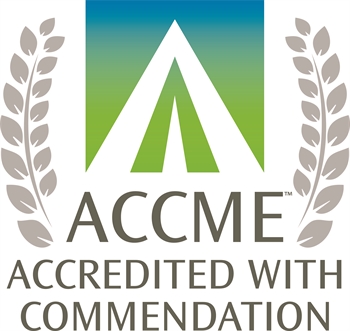CME
Earn CME credit
The American Society of Retina Specialists is accredited by the Accreditation Council for
Continuing Medical Education (ACCME) to provide continuing medical education for
physicians.
Members and non-members: log on using your ASRS user name and password. Complete an evaluation and print a certificate for each CME activity you attended. Once logged in, you can move to other events attended by clicking "Change Conference" on the top navigation bar. You can re-print your certificates on-demand as needed.
Corporate physicians: please contact stacy.kiff@asrs.org if you would like to claim CME credit for sessions attended.
If you need access to an ASRS event not listed below, please contact us at 312-578-8760 or members@asrs.org.
2025 Business of Retina Meeting
Credit claims are available until 12/31/2025.
Hover over your cursor over the box next to each session and claim credits commensurate with participation. You can then generate your CME certificate.
ASRS Continuing Medical Education Mission Statement
Purpose
The American Society of Retina Specialists (ASRS) is a nonprofit corporation which provides a scientific forum designed to promote the sharing of 1) new scientific research of vitreoretinal diseases and surgery and 2) ideas for optimization of clinical practice.
The overall goal of the ASRS CME Program is to provide CME activities that will address the
professional practice gaps of ASRS members by offering activities that aid in enhancing our
participants’ competence in the fields of vitreoretinal diseases, surgery, and practice
management.
Target audience
The ASRS CME audience is the portion of the Society’s membership that is licensed to practice medicine in the United States (US members). US members of the ASRS have completed 1 or more years of a vitreoretinal disease fellowship and are engaged in an active retinal specialty practice or are members-in-training in a vitreoretinal fellowship program.
Types of activities provided
To accomplish the goals of the ASRS CME Program, the ASRS organizes scientific meetings, instructional courses, and live and enduring webinars.
Content
The scope of the ASRS CME Program includes the presentation of scientific papers, panel
discussions, posters, and videos by vitreoretinal specialists from around the world on topics
concerning the diagnosis and management of vitreoretinal disorders, and topics concerning
the business of medicine. These activities are presented at the Annual Meeting and at
adjunctive meetings approved by the American Society of Retina Specialists Board of
Directors.
Expected results
The expected results of the ASRS CME Program are improvements in our physician participants’ competence. The ASRS educational content is expected to provide the members of the American Society of Retina Specialists with expanded knowledge to enable them to diagnose and treat vitreoretinal diseases with the most advanced concepts and techniques available.
CME evaluation forms
In accordance with the ACCME criteria and guidelines, we ask that all attendees evaluate each presentation and identify the effectiveness with which the educational goals are met. Suggestions for improvement of future educational programs and identification of specific educational needs are also requested.
CME credit awards
CME credit certificates will be available for download by registrants after the meeting. The number of hours awarded will be based on documentation of attendance provided by the registrant on the electronic claim credit form.
Educational objectives and goals
The purpose of the ASRS Annual Meeting is to enhance the competence of vitreoretinal specialists in the diagnosis and treatment of vitreous and retinal disorders using the most advanced concepts and techniques and to allow the presentation of new and ongoing research data to assist practicing vitreoretinal specialists with the advancement of knowledge and skills in their medical field. The ASRS Annual Meeting will provide a forum for rapid dissemination for the most recent scientific research results to the target audience in attendance.
Upon completion of the scientific sessions, participants shall be able to: describe the findings, diagnosis and treatment of various vitreoretinal disorders such as macular degeneration, choroidal neovascularization, diabetic retinopathy, venous occlusive disease, macular holes, epiretinal membranes, ocular inflammatory disease, ocular oncology, pediatric retina, and retinal detachment.

